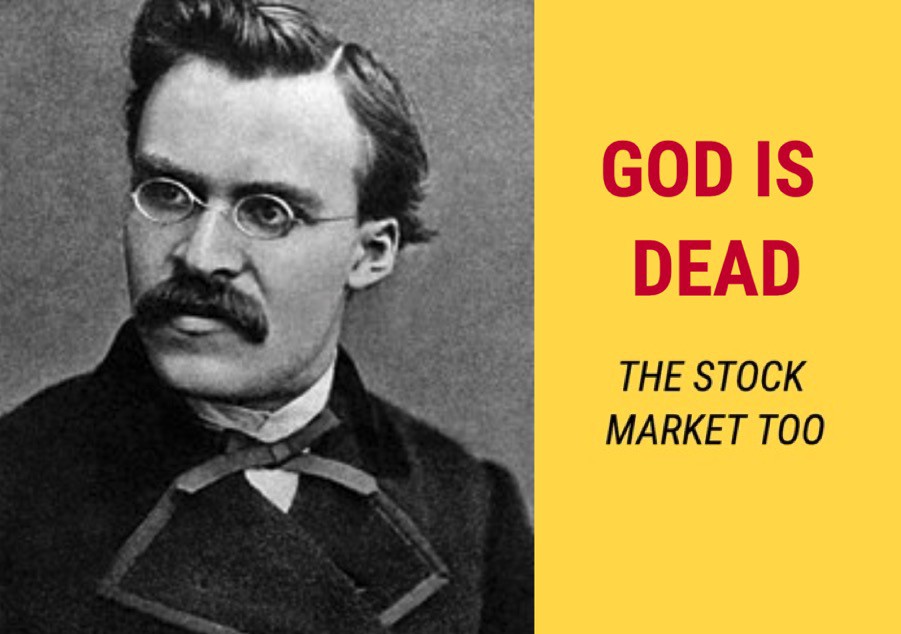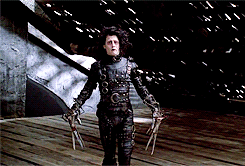Related articles
Nietzsche's thoughts on startups

What is the secret of the revolutionary startups of our time? In the era of uberization, can big companies find a place other than in a graveyard? Let's give the floor to Nietzsche who thought a lot about it!
I. Summary of Nietzsche's three metamorphoses
In the first part of Thus Spoke Zarathustra, Nietzsche introduces his thesis of the Übermensch (superman) with an allegorical passage narrating the metamorphoses that humanity must experience in order to emancipate the religious and reach true morals.He explains that the human spirit must evolve from obedience, symbolized by the camel, to the pure affirmation of which the child is the image, through the violent denial of personalization. made by the lion.
I will now describe the three metamorphoses of the mind: how the mind becomes a camel, the camel then a lion, and the lion finally a child.
Initially, humanity is incarnated in the figure of the camel who carries burdens symbolizing the ascetic values of Christian morality such as submission to God, obedience to the law or love of the truth. The camel is the one who confuses assertion with the simple ability to bear because there is no active adherence to values but simple submission.

But the love for the truth developed by the camel will eventually turn against this accumulation of knowledge and values since it secretes in itself the capacity to doubt. The camel will gradually question its knowledge and values.
From then on, the camel heads for the desert and the spirit begins its second metamorphosis as the camel becomes a lion. The lion symbolizes the release of the will. He fiercely refuses all the burdens that anyone would want him to bear. He refuses anything that does not come from his own will.

The lion is therefore the figure of this will that refuses all transcendence, but his work is limited insofar as he remains unable to create new values. Leos are only able to deny old values but they cannot overcome this negation and remain in some way dependent on these old values.
To overcome this sterile nihilism and enter into the creation of value, the lion must transform into a child. The child is no longer haunted by the weight of history as is the lion who denies his past. This allows him to exercise a free will that is much greater than a will imbued with the denial of past values.

Humanity must learn to become a child again in order to escape its destiny and take the risk of living. Children can create freely because their existence is not yet imprisoned by prejudices. He is the one who has no preconceived idea about fire and who therefore takes the risk of putting his hand in the fire even if it gets burned.
II. A free interpretation of the text
By spinning the metaphor, we can say that big businesses are like that camel that has been responsible for multiple burdens over the years. Instead of being positive values, these burdens are at best overly complex procedures or outdated processes, at worst bad practices, and often a mixture of all of these. The employees of these companies, once they passed the stage of top management, saw their creative energy die out. Like the camel subject to God and the law, they are subject to conservative decisions and shareholding norms. One day, overwhelmed by these burdens that continue to accumulate, the large group decides to revolutionize everything (often after the CEO returns from a trip to Silicon Valley ^^). Unfortunately, he can't do it. It's like a lion: it roars loudly but can't get rid of its past and be able to start from scratch. Pure creation is impossible for him because he suffocates in everything that has characterized him hitherto. Only the child is capable of introducing the unheard of and the new. In other words, only a newcomer can disrupt a mature business.
Example. That's what Southwest Airlines has managed to do in the U.S. airline industry since its inception in 1967. The company specializes in short distances between medium-sized cities in the United States. This allowed him to build an unprecedented strategic equation that broke many rules, the many key success factors that had governed the sector until now:
- instead of setting up a hub system, Southwest favors secondary airports that are less congested and less expensive,
- instead of outsourcing its reservation system via a service like Apollo or Saber, Southwest has developed its own reservation system,
- a strong corporate culture that makes Southwest the preferred airline for its employees and passengers,
- a unique class system that breaks with the separation into different classes of conventional companies because they earn the majority of their money thanks to their business class.As a result, Southwest manages to offer trips at very attractive prices. But unlike low-cost European airlines such as Ryanair or EasyJet, Southwest is able to obtain great customer satisfaction thanks to the reliability, frequency and punctuality of its flights. For over 40 years, the company's profitability and growth have far exceeded those of all its competitors. It is even the only American company that has been continuously profitable since its creation! Despite some attempts, the competitors already in place have never succeeded in reproducing the entire Southwest strategic equation. This example perfectly illustrates the fact that even as a lion, the old camel cannot completely change his business because he is captive to his old codes. How to launch a low-cost subsidiary without cannibalizing the parent company? How do you stop working with a hub when the set-up costs have been extremely high? As you will have understood, you have to be a child, a South-West to succeed in radically transforming the rules of a sector of activity, in order to be able to implement a radical and sustainable innovation.
III. Putting Nietzschean thought into practice
With his allegorical text of the three metamorphoses, Nietzsche shows that we can only become Übermensch by becoming a child again. This is absolutely not paradoxical because the child is the only one who has enough virginity to create new values and assert himself without having to deny what he refuses. However, children can also - and often - make mistakes, but we do not hold them accountable.
In the same way, innovation can only be implemented by a newcomer, without a predefined design. The superman does not like the individual who is filled with knowledge and experience in a field because he will not be able to introduce the break. This ignorance can also lead to failures, but it is part of the “fail fast” logic, which wants startups to grow very quickly and close if they don't work.It should be remembered that Mark Zukerberg launched Facebook at 21, the same age as Steve Jobs when Apple was created. For their part, Larry Page and Sergei Brin were 19% older (25) when Google launched. I'll spare you the numbers of market capitalization, the number of users and the quantity of radical innovations brought by these three companies as well as the endless list of other innovative but lesser-known companies created by people under the age of 25. Note, however, that these companies are children in the Nietzschean sense of the term and so are their founders! Coincidence? ...Thus, to innovate today, either you are a startup and you then have a sufficiently large field of possibilities to revolutionize the uses of the sector in which you operate, or you represent a large group and you must recognize that innovation cannot germinate within its structure. Therefore, two options are available to the large group: -Make a child like Nestlé with Nespresso by creating an autonomous structure with new people from outside the company and new people (it's very different from intrapreneurship!) , - to adopt a child by buying startups. Be careful not to be an overprotective parent: grinding things up can kill. Compare that with the countless startups bought and unintentionally destroyed by the big group, like Edward Scissorhands petting a chick.
